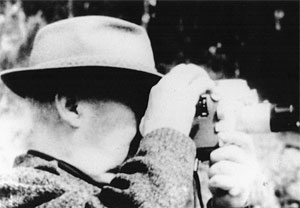 |
||||||
|
HI RES PRESS PHOTOS
ALL PRESS
SF Chronicle Datebook, March, 2024 Local News Matters, March 2024 Local News Matters, November, 2022 The New York Times, March, 2022 San Francisco Chronicle, June 2012 La vida nos estremece October 2011.pdf The Village Voice, October 2010 This Week in New York blog, October 2010 Tribeca Film Institute blog, October 2010 Senses of Cinema, Issue 53, January 2010 San Francisco Chronicle, October 2009 San Francisco Bay Guardian, November 2005 San Francisco Chronicle, November 2005 San Francisco Weekly, November 2005 San Francisco Examiner, October 2005 Scene 4 Magazine, October 2005 San Francisco Bay Guardian, March 2005 Contra Costa Times, April 2004 San Francisco Bay Guardian, November 2002 Vogues Hommes International, Spring/Summer 2002 (pdf) Miami New Times Review & Interview 2001 San Francisco Chronicle Review, 2001 San Francisco Examiner Review, 2001 San Francisco Bay Guardian Review, 2001 San Francisco Chronicle Profile, 2001 Movie Magazine International Review, 2001 The Stranger (Seattle) Review, 2001 San Francisco Weekly cover story, 2000 New York Times Profile, August 2000
Disturbing behavior By Jeffrey M. Anderson The experimental film is by far the most neglected genre in the film world, even more than documentaries or animated films. But nested here in San Francisco is a hotbed of free-thinking filmmakers like Craig Baldwin, Nathaniel Dorsky and many others who perpetuate this form. This week, the Roxie presents a week-long tribute to Jay Rosenblatt, another local misfit who makes disturbing and profound statements about the way we are. Representing works from 1990 to 2000, the 80-minute "The Films of Jay Rosenblatt" includes five films ranging from one minute ("Restricted") to half an hour ("Human Remains"). The films all consist of "found footage," or previously shot footage culled from old newsreels, industrial films and home movies. The program begins with "Restricted" (1999), which is more a poem than a narrative. It contains disturbing images of human behavior, from someone salting bacon and eggs to people getting undressed, narrated by repeated, contrasted mantras saying "take a chance" and "don't do it." "Short of Breath" (1990, 10 minutes), includes unsettling images of a psychoanalytic session (Crying woman: "You must think I'm a baby." Doctor: "Yes I do."), coupled with images of a suicidal woman jumping out a window. It begins with a slowed-down image of a woman weeping into her hands, and Rosenblatt carries the sounds of wailing throughout the rest of the film. "The Smell of Burning Ants" (1994, 21 minutes) has a cohesive theme, delving into the societal need to take away the feminine side of men while they're still very young, doing things like discouraging boys from crying. Later, boys develop tendencies toward cruelty, banding together with other boys to pick on weaker kids, and especially torturing small animals. Rosenblatt superimposes images of ants under images of fire, then ends the film with the humorous disclaimer, "No animals were harmed during the making of this film." "Human Remains" (1998, 30 minutes): An extraordinary film, using images of five evil world dictators, Hitler, Mussolini, Stalin, Franco, and Mao, and putting them together like a dating video, with each dictator explaining little personal things about himself. To make things seem authenticc, Rosenblatt plays a phony foreign-language track underneath the equally phony English tranlations. Hitler, it seems, enjoyed pornography and slept with his 22-year-old niece, who then shot herself. He and Mao both had only one testicle. Mao popped sleeping pills and hardly ever left his bedroom. It goes on. The effect is only slightly comical, though. Instead, you get thinking about the bad mental and physical wiring that helped these horrible individuals perpetrate their crimes against humanity. In "King of the Jews" (2000, 18 minuntes) Rosenblatt confronts his childhood fear of Jesus Christ (whom his family called "Jersey City") by looking at the long-held and false belief that Jews crucified Him instead of the Romans. Rosenblatt uses tons of old-time Jesus movies, including Nicholas Ray's "King of Kings" (1961), the movie that, as a child, changed his perception and made him face his fear. He even uses home movie footage, shot by his parents, of himself as a child. I won't coddle you: these are difficult, disquieting and challenging films. But you'll be astonished when you realize the secret of Rosenblatt's art. He takes goofy old films and suddenly imbues them with a potency and power they never before had. In other words, he's made a silk purse out of a sow's ear, no small feat. Brave filmgoers will find their eyes open and their brains truly tested after venturing into this program of Rosenblatt's films. |
||
